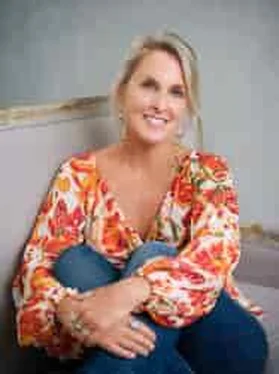“Yes, you can go,” Mallory says. “Tell Terri I’m paying for all your expenses. She shouldn’t have to spend a dime.”
Link collapses back in his chair. “Thank you, Mama.”
“You’re welcome, my sweet prince.”
Link’s eyes fill. “I don’t want her to go.”
“I know,” Mallory says. “Believe me, I know just how you feel.”
Summer #26: 2018
What are we obsessing over in 2018? The Parkland shooting; Kim Jong-un; tariffs; Justify; the Philadelphia Eagles; the opioid epidemic; Mark Zuckerberg; Waffle House; Bill Cosby; Anthony Bourdain; the Tham Luang cave rescue; Banksy; Larry Nassar; the Colorado baker; Peloton; Kate Spade; family separation at the border; the Boss on Broadway; duck boats; Cardi B.; Annapolis; Barbara Bush; Tree of Life synagogue; Stephen Colbert; Chris Pratt and Anna Faris; Daenerys, Jon Snow, Arya, Cersei, Tyrion, Sansa, and Bran; Bohemian Rhapsody; Jerome Powell; “Kiki, do you love me?”; California wildfires; Jamal Khashoggi; George H. W. Bush.
Ursula wakes up to twenty-four text messages, twice as many e-mails, and fifteen voicemails, three of which are from Lansdell Irwin, chairman of the Senate Judiciary Committee.
Eighty-four-year-old Supreme Court justice Cecil Anne Barton, known as Justice Cece, has died in her sleep. It’s not exactly a tragedy at her age, but she was loved by one and all.
The three voicemails from Lansdell Irwin are variations on Wake up, Ursula. We have work to do.
The selection of a Supreme Court nominee is delicate and Ursula de Gournsey happens to believe it’s the most important thing a president will do during an administration. The current president, eighty-three-year-old John Shields, is a kindly gentleman who comes across like a fun grandpa, the one who takes the kids out to Carvel for dinner. It’s understood that because of his advanced age, he’s a one-term president, a placeholder until the Future steps forward. Shields gamely admits that he doesn’t understand “the social media”—he can’t figure out Facebook, never mind Twitter—so he leaves that to “the youngsters.” Ursula doesn’t have high hopes for any Supreme Court candidate Shields nominates; she’s heard whisperings of some of the names on the short list and they’re all uninspiring.
When his nominee is announced, Ursula is pleasantly surprised. It’s Kevin Blackstone Cavendish; he goes by “Stone” or, to his closest friends, “Stonesy.” The only sticky issue with Stone Cavendish is that he’s yet another white male, and aggressively WASPy: St. Paul’s, Dartmouth, Yale. But overall, he’s a solid choice, one that is notably nonpartisan. He’s married; he has three kids in public schools; he’s personable (for a judge), charming, even. If Ursula herself were president, he might be her nominee. She predicts he’ll be confirmed by both the House and the Senate with very little drama.
Ursula is wrong.
A woman steps forward, a well-respected superintendent of schools in Richmond, Virginia, who claims that Stone Cavendish physically and sexually abused her in the summer of 1983, which was the summer before both she and Stone left for college. They met at a bonfire in Point Pleasant, New Jersey. Stone was working as a lifeguard there and the woman, Eve Quist, was visiting her friend’s summer home for the weekend. Stone and Eve talked at the bonfire; Stone brought Eve a can of Coors Light. Eve claims that when she went into the dunes to relieve herself, Stone Cavendish sneaked up behind her, tackled her in the sand, hiked up her skirt, and started to unbutton his shorts. When Eve started screaming, he threw a handful of sand into her face, and some of it went into her eyes and some of it into her mouth. She felt like she was choking, she says.
He said, Just be quiet, please, and give me what I want.
He tried to slip his hand into Eve’s panties and she bit his shoulder, hard; she broke the skin, tasted blood. He loosened his grip enough that Eve Quist was able to struggle free and run back to the bonfire to get her friend. The two girls left the party.
Eve told that friend, Lydia Hager, about the incident and said she wanted to call the police. But the two girls had sneaked out of Lydia’s house in order to attend the party and Lydia was afraid of getting in trouble. She begged Eve to forget about it. Lydia knew Stone Cavendish, knew he was off to Dartmouth. Eve, meanwhile, was headed to UVA.
You’ll never have to see him again, Lydia said.
Stone Cavendish categorically denies the accusations; he says he doesn’t remember Eve Quist, but there is something in his eyes, Ursula thinks, that says otherwise. Or maybe what she and everyone else in America are seeing is his incredulity that anyone can just come out of the woodwork, say whatever she wants, and threaten his chance at a seat on the Supreme Court.
The FBI investigates the accusations. The media has a field day.
Eve Quist is attractive, poised, articulate, intelligent, and has nothing to gain from coming forward. In fact, she has everything to lose. She stays resolute and consistent with her story. Not a single detail changes over the dozens of times she tells it. Her husband, William Quist, is an orthopedic surgeon; he tells investigators that Eve related this story to him on their third date. He says he knows the incident has probably haunted Eve in a way that bad things from your past haunt you and although she would never have tracked the guy down, she couldn’t stand by and let him ascend to the highest court in the nation without letting people know that he is—or was—abusive. They aren’t looking to ruin anyone. Eve would like an admission of guilt and an apology from him.
Stone Cavendish provides neither.
Lydia Hager would have been an excellent corroborating witness but she died of breast cancer in 2011. Eve didn’t know anyone else at the party.
The FBI does its due diligence and contacts all the people who were lifeguards in Point Pleasant during the summer of 1983. They find three men and one woman who remember working with Stone, and all four people say they regularly attended bonfires on the beach at which Stone Cavendish was present. The men say they have no idea which night Dr. Quist is referring to. There were so many parties and it was so long ago. The woman, Cindy Piccolo, does claim to remember the evening in question. Cindy Piccolo had been dating Stone Cavendish for most of the summer of 1983 but they had broken up in the middle of August, she said, because Stone wanted to go off to Dartmouth without any lingering attachments. Cindy had still been hung up on him. It was impossible not to be, she said in her statement. He was good-looking, smart, confident, a preppy boarding-school kid who was going to an Ivy League college. Cindy had seen Stone that night talking to a redhead who someone said was a friend of Lydia Hager’s. Cindy had watched them closely. She saw when Stone brought Eve a beer; she watched Stone follow Eve into the dunes. She also claims she saw Eve come out of the dunes alone—Cindy registered relief—and she herself had gone to find Stone. They had ended up making love in the dunes that night.
Does Cindy remember if Eve seemed upset coming out of the dunes?
No, she says. I don’t remember.
Does Cindy remember if Stone had been bitten on the shoulder? Eve Quist says Stone Cavendish was wearing a tank top, so a bite might have been visible.
No, she says. I don’t remember.
Did Cindy hear anybody talking that night or the next day about what happened while Eve and Stone were in the dunes together?
No, she says.
Did Cindy ever see Lydia or Eve again?
No, Cindy says. But I remember the red hair. Eve’s hair. That’s definitely the person he went into the dunes with.
Читать дальше












